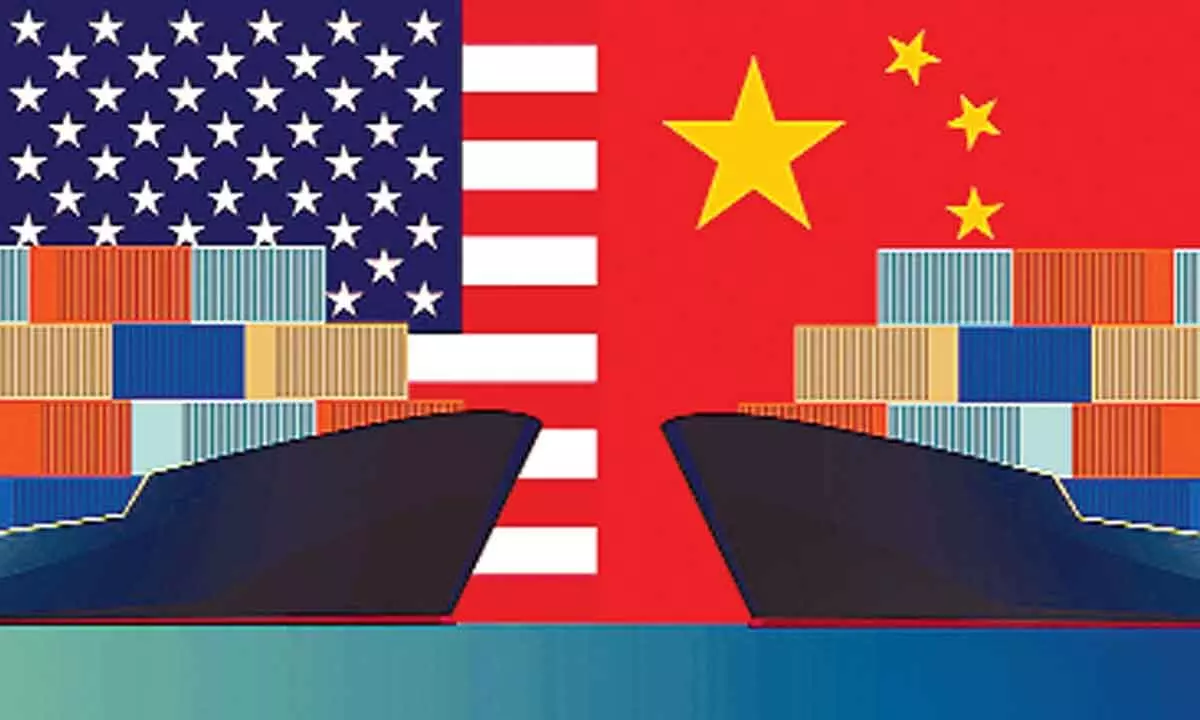Friendshoring: An idea whose time has come
Friendshoring has evolved and become popular after the US, as many other countries, realized that dependence on China for manufacturing and the supply chains linked with it was not good
image for illustrative purpose

The United States seems to be veering towards the idea of friendshoring. It is the mechanism that focuses on, if not restricts within, manufacturing and sourcing of key inputs to trusted countries with shared American values. It is an idea whose time has come. US Treasury Secretary Janet Yellen is its most important proponent.
Friendshoring has evolved and become popular after the US, as many other countries, realized that dependence on China for manufacturing and the supply chains linked with it was not good. The lockdowns in China have not just hurt the Chinese economy, but also adversely affected other nations, including India. It would not be wrong to assert that the main target of friendshoring is China.
In her visit to India last week, Yellen said that the US will pursue the friendshoring approach of deepening economic integration with trusted trading partners like India to diversify away from countries that present geopolitical and security risks to supply chains. She discussed a variety of issues with Finance Minister Nirmala Sitharaman.
"For too long, countries around the world have been overly dependent on risky countries or a single source for critical inputs. We are proactively deepening economic integration with trusted trading partners like India," Yellen said. She went on to add that the US and India share an interest in strengthening their supply chains in a world where certain governments wield trade as a geopolitical weapon, Yellen said. Explaining friendshoring in the Indian context, she said that it is about developing countries growing local industries and connecting them to the global supply chain.
New supply chains are developing across regions from Asia to the European Union, the US Treasury Secretary said. "We are also seeing signs that Western firms are diversifying their supply chains beyond China. Technology companies like Amazon and Google are investing in India and Vietnam. Apple recently announced that it was shifting some iPhone manufacturing from China to India. The US will continue to deepen our business and commercial ties with India as we pursue our friendshoring agenda."
One hopes that the ties deepen. India, which has been struggling for decades to grow its manufacturing sector, has a golden opportunity to realize that dream. American and other Western companies are searching for the countries where they could set up their factories. Washington also wants that. The only thing India has to do is set its own house in order, and that will take a lot of doing.
To begin with, friendshoring is likely to be opposed by the votaries of Swadeshi, for they are doctrinally and temperamentally against anything foreign, especially foreigner. They see an East India Company in every multinational corporation and evil in any innovation in the farm sector.
But there are other opponents as well. For example, Raghuram G. Rajan, professor of finance at the University of Chicago Booth School of Business and former governor of the Reserve Bank of India. He wrote in an article in June, "Today's global supply chains - made possible by reductions in tariffs and lower transport and communication costs - have transformed production by allowing firms to make goods wherever it is cheapest to do so."
This has generally meant that while high-value-added inputs are sourced in advanced economies, manufacturing moves to emerging markets and developing countries, he wrote. "The benefits are obvious. Final products are significantly less expensive, so even the poorest people in rich countries can buy them. At the same time, developing countries participate in the production process, using their most valuable resource: low-cost labor."
According to Rajan, global supply chains result in a win-win situation. "As their workers gain skills, their own manufacturers move to more sophisticated production processes, climbing the value chain. As workers' incomes rise, they buy more rich-country products. By 2017, for example, China had more iPhone users than any other country. Knowledge workers in rich countries then earn higher incomes as the market for high-value products grows."
What Rajan failed to mention was the fact that Beijing is under the Communist Party of China, which has blended the violent ideologies of communism and nationalism into a creed which is more dangerous than either of the two. Its supreme leader, Xi Jinping, keeps sending belligerent messages to the world. Xi's China is not that of any of his post-Mao predecessors'.
Against this backdrop, minimizing the role of China in global supply chains - which is the primary objective of friendshoring - must be welcomed by the policy makers and businesspersons in India.

